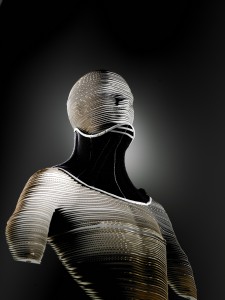 A collaborative research initiative brings together researchers from the disciplines of design, creative practice and healthcare who have extensive experience related to social, clinical and medical care, disability and ageing.
A collaborative research initiative brings together researchers from the disciplines of design, creative practice and healthcare who have extensive experience related to social, clinical and medical care, disability and ageing.
Lab4Living‘s aim is to propose creative strategies for the development of future living environments, in which people of all ages and abilities are enabled and empowered to live with dignity, independence and fulfilment.
Sheffield Hallam University works with partners including Devices for Dignity (D4D) Healthcare Technology Co-operative (HTC) and The National Institute for Health Research Collaboration for Leadership in Applied Health Research and Care for Yorkshire and Humber (NIHR CLAHRC YH).
The team’s approach adopts a holistic, ‘human-centred’ approach, rather than focusing solely on medical or social care provision or future technological possibilities. Researchers collaborate closely with Design Futures, the design consultancy group within the ADRC, in commercially orientated healthcare projects.
Lab4Living also refers to the physical space on campus where much of their research takes place. This space is a state-of-the-art experimental area where it’s possible to conduct both qualitative and quantitative studies of human behaviour and to understand individuals’ interactions with the built environment.
The team work with numerous partners including academic colleagues from across the world, the private sector and key healthcare eco-system organisations such as NHS Trusts, older people’s services and others. Third sector partners such as Age Concern, the University of the Third Age and Sheffield Elders also play an active role in contributing to the research process.
Research projects they worked on include developed a revolutionary new neck collar which could transform the lives of 5,000 motor neurone disease patients following an NIHR i4i funded collaboration between Lab4Living, NIHR Devices for Dignity HTC, SITrAn at The University of Sheffield and the Motor Neurone Disease Association (MNDA).
They’ve collaborating with a private sector partner on a range of innovative wearable medical monitoring devices, including a wearable system that provides quantitative and qualitative information to assess a user’s dynamic plantar pressure and gait which supports more accurate assessment of people with diabetic foot disorders.
And they’ve also improved the quality and design of bathroom furniture for older people through an Engineering and Physical Sciences Research Council funded project with Ideal Standard.
Lab4Living also host a biennial conference that brings together designers and creative practitioners with researchers, clinicians, policy makers and users to discuss, disseminate and test approaches and methods to healthcare design.



